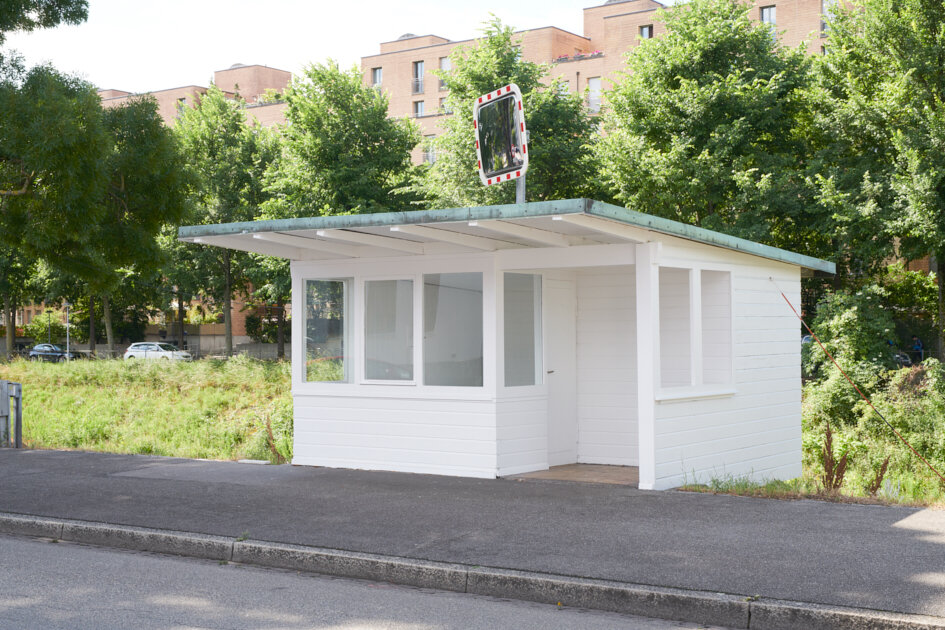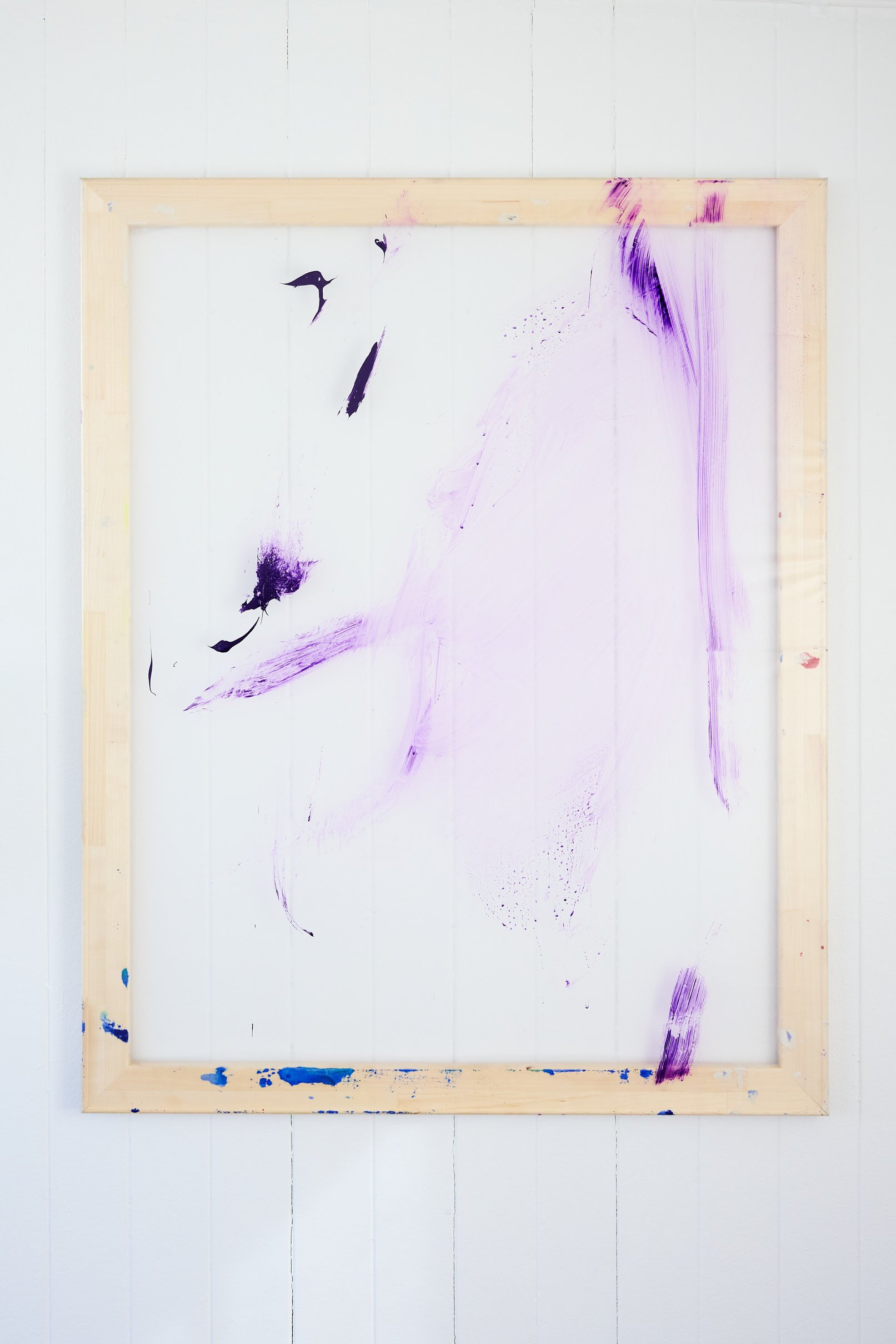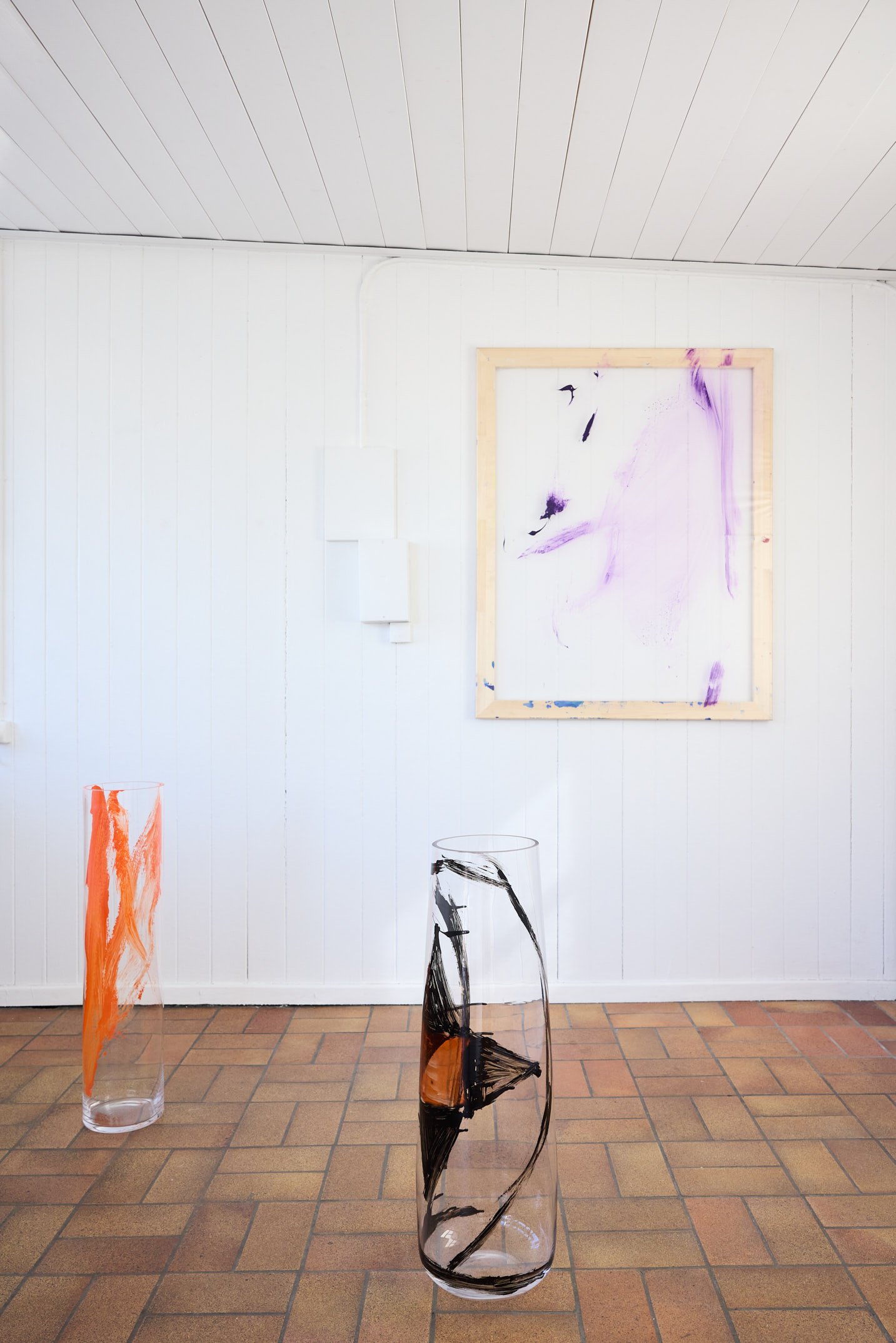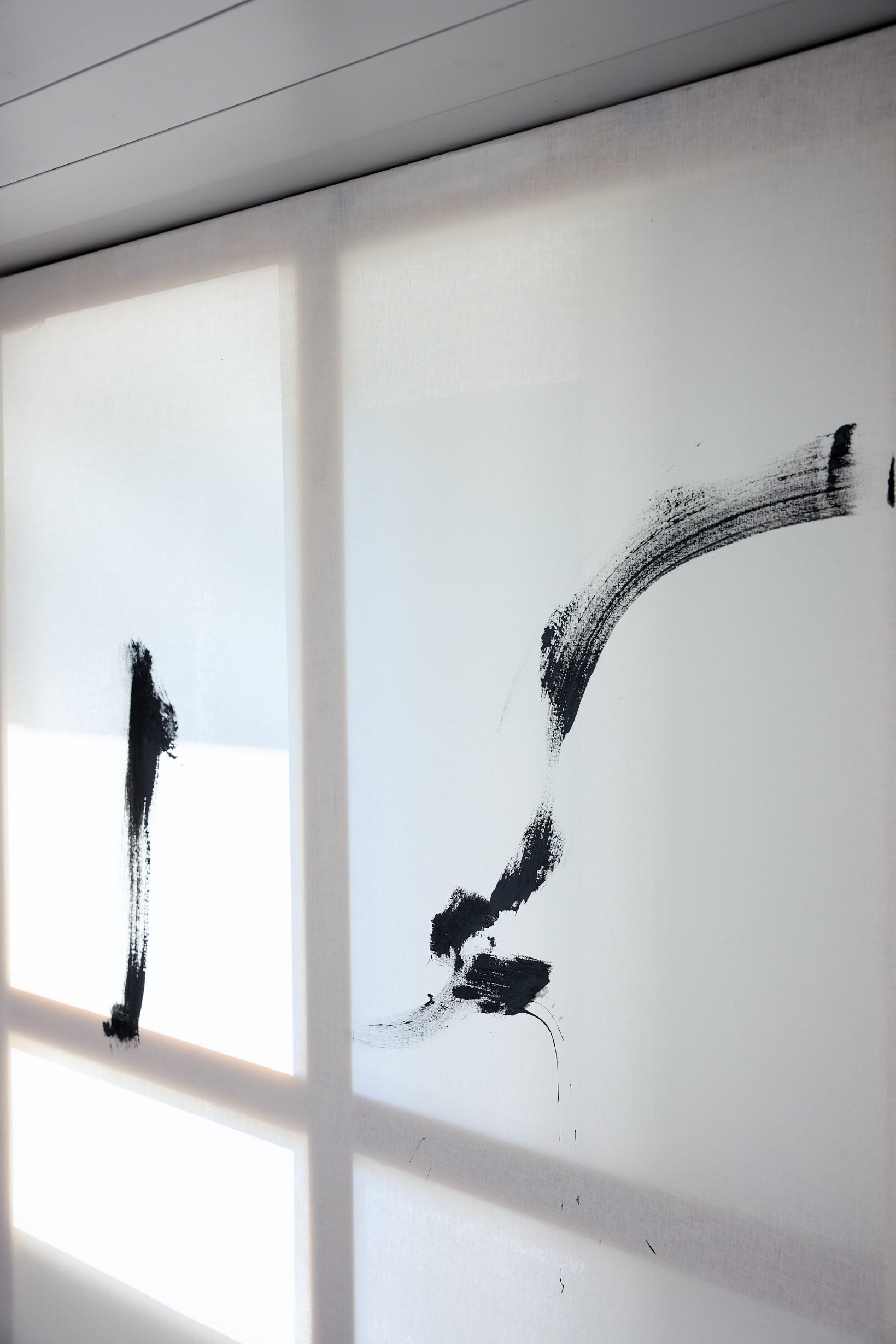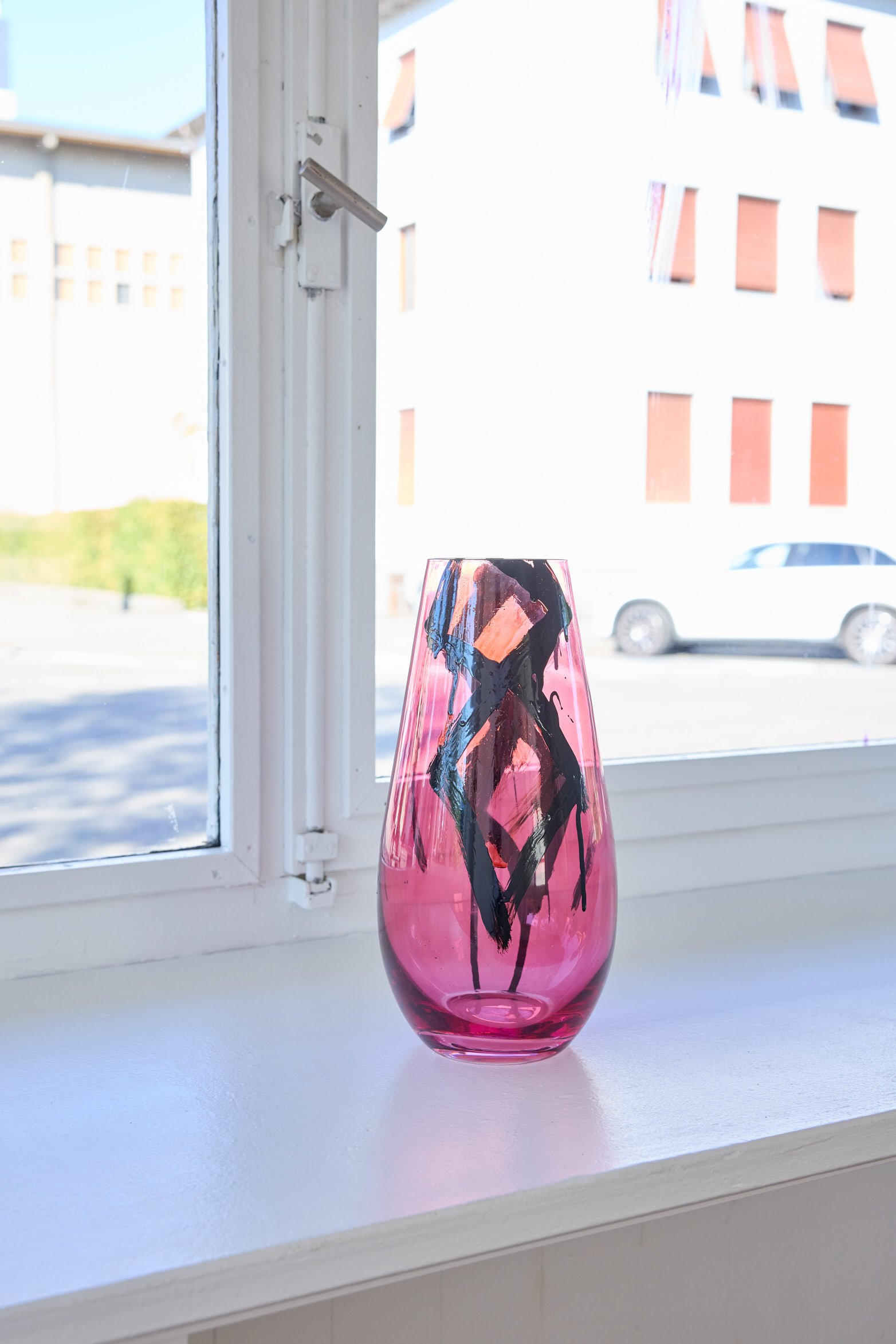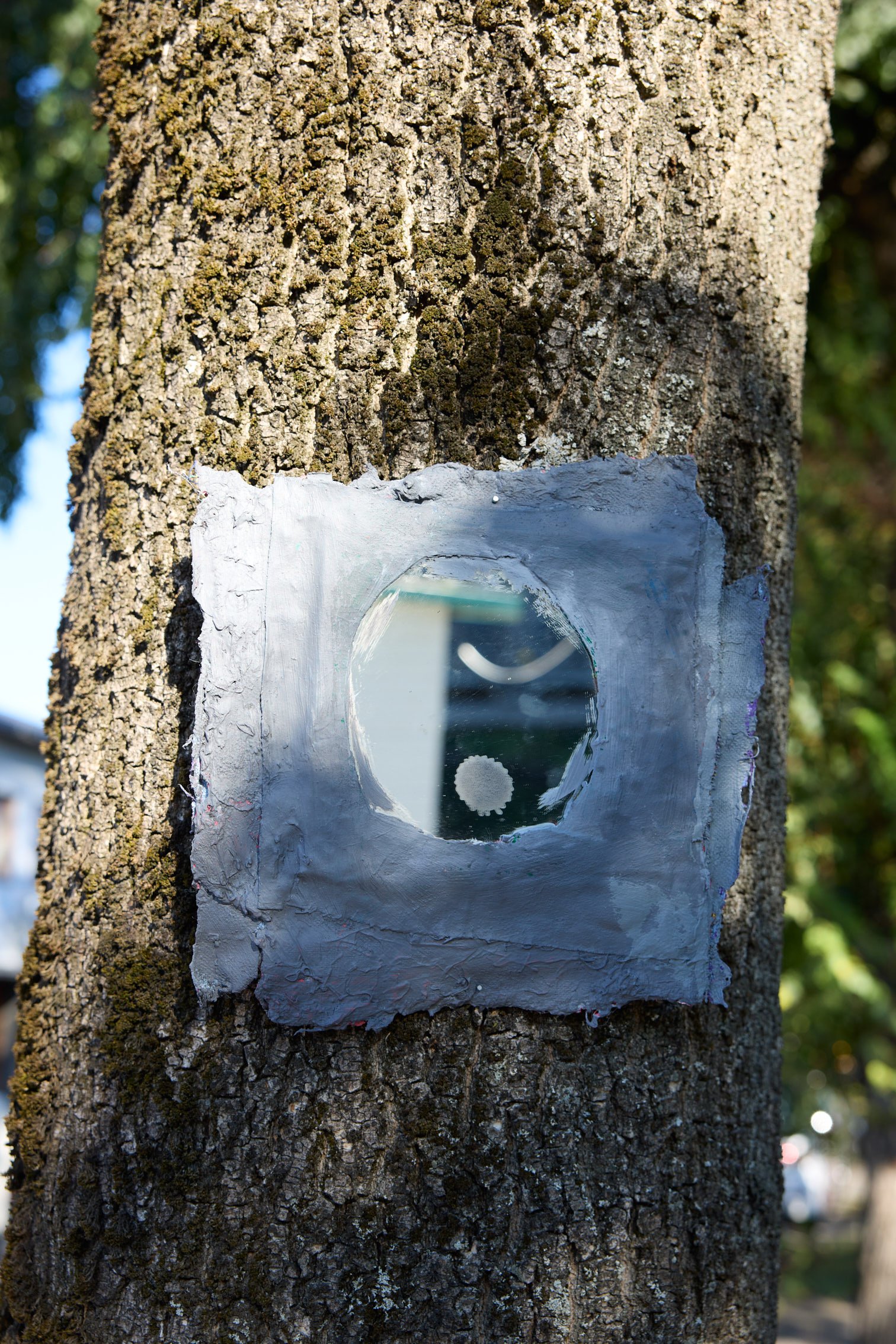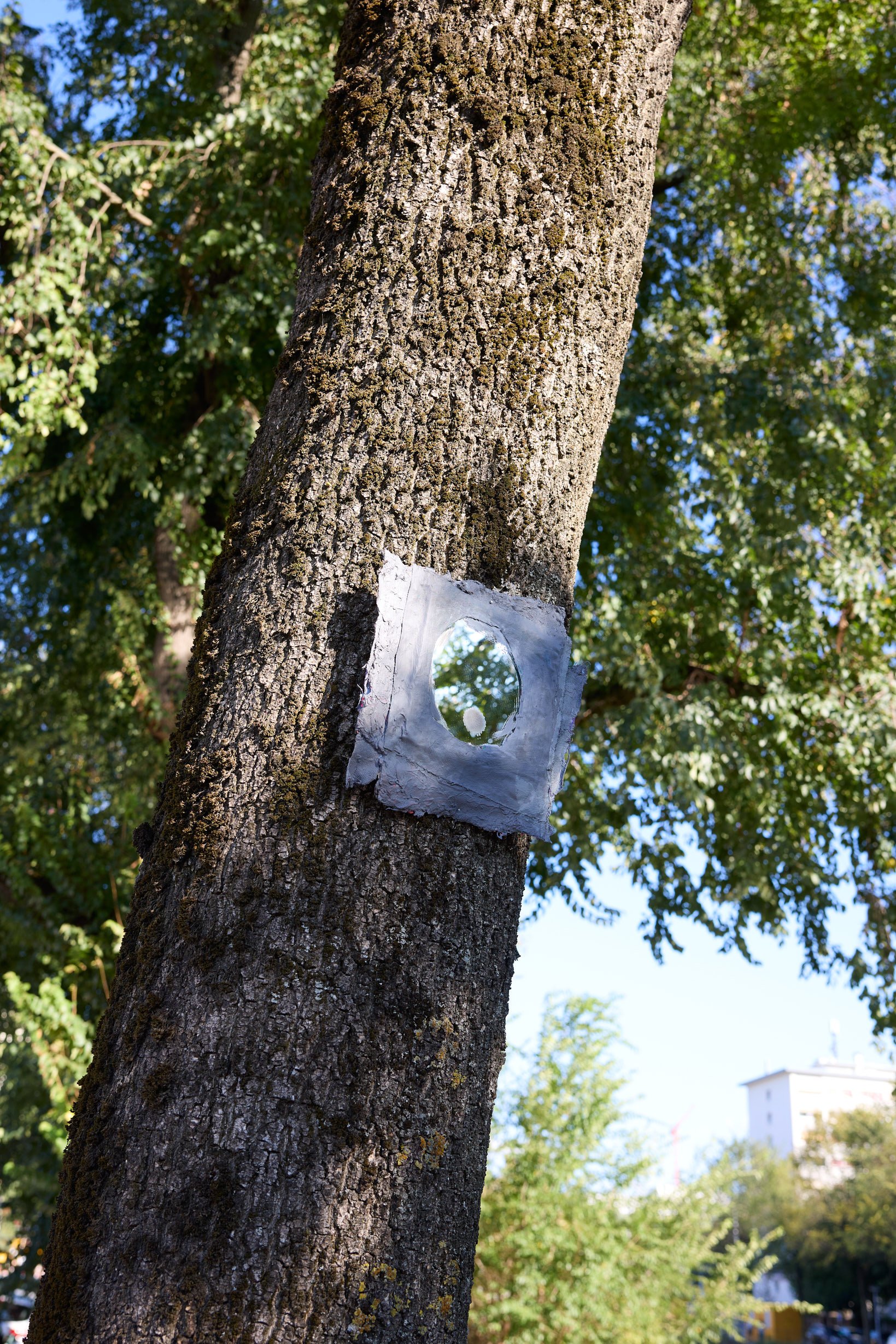04.9.22 – 30.10.22
Viktor Korol
Doppelleben
Text Viktor Korol
Questions: Isabel Zürcher
Photo: Claude Gasser
Mirror work - Monster
This work is about looking yourself in the eye and recognizing yourself as a monster.
What is monstrous and what is not monstrous?
Painting - I‘m air
Many of my works are about the disappearance of the ego.
About the extinction of the ego. About the longing of disappearance.
I find this aspect interesting as an artistic expression.
Vase works - The world is changing without me
This work is not about having to effect something.
They have no function. If this work has to do something, it has to assert itself as a sculpture and as a form and as an aesthetic.
Questions for Viktor Korol (Isabel Zürcher)
Are there things that you learn exclusively or predominantly from your creative practice?
You deal with yourself, you observe yourself, you reflect and question why you do certain things. It‘s actually a constant questioning and doubting. In my artistic practice I can experience all the great emotions of life between happiness and doubt.
Do you experience moments of happiness when working? And if so, what constitutes this happiness?
For me, the exciting thing about working is being in the moment: when I‘m in the studio, I‘m often present in the now. There are many moments of happiness in the studio, but all emotions can arise there. If you like what you‘re doing, you‘re happy, or conversely, you‘re devastated.
What or whom does your art need most?
For me, other people are the biggest inspiration: other artists, musicians, painters, designers. For my art, I mostly need other people who make things I find inspiring.
Is your practice concerned with politics? With poetry? With both?
I have a lot of reverence for politics, and I see that in art circles this is often not the case. That specific terms are used to create a profile – an arguable strategy in my eyes. I also feel a certain pressure to position myself politically as an artist. I also don‘t like many things (e.g. frontex) that happen in our society. However, I think that art should not be so arrogant as to stand up and make a work critical of capitalism, for example, and think that the world will then be better. That‘s a tendency I‘ve been noticing lately. I think it‘s very convenient and apolitical. For me, art that doesn‘t come along with a big pointing finger is much more relevant. With every hand movement I save the world? I‘m sorry, I don‘t believe in it.
What do you consider criteria for success?
I understand success on different levels. That the paintings have an audience, exhibiting the works and entering a dialogue, that‘s success. Another kind of success would be to be satisfied with what you do – exhibit – show.
What can art criticism do (in the best of cases)?
Art turns the solution into a riddle. (This is a quotation by Austrian author Karl Kraus). We too often commit ourselves to unambiguity in the contemplation of painting. Only the painter can create this ambiguity. That means in the field of painting, the verbalization is never quite right.
Say you are alerted, disturbed, shocked or excited by another artist’s work. Which aspects most strongly trigger your interest?
It‘s difficult to put this into words. It‘s more a feeling that works trigger and that touch me on several levels, be it emotionally and/or intellectually.
Spiegelarbeit – Monster
Bei dieser Arbeit geht es darum, dass man sich selbst in die Augen sieht und sich als Monster wiedererkennt.
Was ist monströs und was ist nicht monströs?
Malerei – Ich bin nur Luft
Es geht in vielen von meinen Arbeiten, um das Verschwinden des Ichs.
Um die Auslöschung des Ichs. Um die Sehnsucht des Verschwindens.
Ich finde diesen Aspekt als künstlerische Äusserung interessant.
Vasenarbeiten – Die Welt ändert sich ohne mich
Bei dieser Arbeit geht es nicht darum, etwas bewirken zu müssen.
Sie haben keine Funktion.
Wenn diese Arbeit etwas muss, dann muss sie sich als Skulptur und als Form und als Ästhetik behaupten.
Fragen an Viktor Korol (Isabel Zürcher)
Gibt es Dinge, die du nur oder vor allem aus deiner Arbeit lernst?
Man setzt sich mit sich selbst auseinander, man beobachtet sich, man reflektiert und hinterfragt, warum man gewisse Sachen macht. Es ist eigentlich ein ständiges sich Hinterfragen und Zweifeln. Bei meiner künstlerischen Arbeit kann ich alle grossen Emotionen des Lebens zwischen Glück und Zweifel erleben.
Kennst du Glücksmomente beim Arbeiten? Und wenn ja: worin besteht das Glück?
Für mich ist das Spannende beim Arbeiten im Moment zu sein: wenn ich im Atelier bin, bin ich oft im Jetzt präsent. Glücksmomente gibt es viele im Atelier, aber alle Emotionen können dort aufkommen. Wenn einem gefällt, was man macht, dann ist man glücklich oder umgekehrt eben auch am Boden zerstört.
Was oder wen braucht deine Kunst am meisten?
Für mich sind andere Menschen die grösste Inspiration: andere Künstler*innen, Musiker*innen, Maler*innen, Designer*innen. Personen, die Dinge machen, die mir gefallen, brauche ich am meisten für meine Kunst.
Hat dein Schaffen mit Politik zu tun? Mit Poesie? Mit beidem?
Ich habe sehr viel Ehrfurcht vor Politik und ich sehe, dass das in Kunstkreisen oft nicht so ist. Dass grösste Vokabeln benutzt werden, um sich ein Profil zu schaffen und das finde ich schwierig. Ich spüre auch einen gewissen Druck, dass ich mich als Künstler politisch positionieren muss. Ich finde viele Sachen auch nicht prima (z.B. frontex etc.), welche in unserer Gesellschaft passieren. Ich bin jedoch der Meinung, die Kunst sollte nicht so überheblich sein, sich hinzustellen und z. B. ein kapitalismuskritisches Werk zu machen und zu meinen, dann wird die Welt besser. Das ist, was ich in letzter Zeit feststelle. Ich halte das für sehr bequem und unpolitisch. Für mich ist Kunst viel relevanter, welche nicht mit dem grossen Zeigefinger daherkommt. Mit jeder Handbewegung rette ich die Welt? Tut mir leid, ich glaub nicht daran.
Was sind für dich Kriterien des Erfolgs?
Erfolg verstehe ich auf verschiedenen Ebenen. Dass die Bilder ein Publikum haben, die Werke ausstellen und in den Dialog zu treten, das ist Erfolg. Eine andere Art von Erfolg wäre zufrieden zu sein, mit dem, was man macht – ausstellt – zeigt.
Was kann Kunstkritik (im besten Fall)?
Die Kunst macht aus der Lösung ein Rätsel. (Dieses Zitat stammt von Karl Kraus.) Wir legen uns in der Betrachtung von Malerei zu oft zu Eindeutigkeit fest. Die Vieldeutigkeit kann nur der Maler/ die Malerin machen. Das heisst im Bereich der Malerei, die Verbalisierung stimmt nie ganz.
Wenn dich Kunst (von anderen Künstler/innen) aufweckt, verstört, erschüttert, begeistert:
Was kann ein Auslöser sein?
Das ist schwierig in Worte zu fassen. Es ist eher ein Gefühl, das Werke auslösen und die mich auf mehreren Ebenen, sei es emotional und/oder intellektuell berühren.
The exhibition "Doppelleben" by Viktor Korol is supported by
